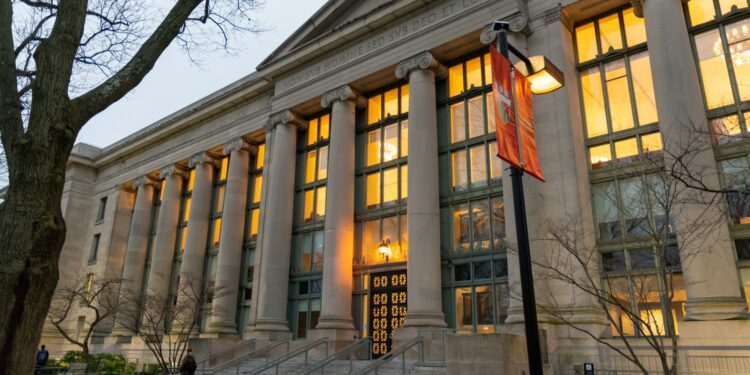A US federal judge has blocked Donald Trump’s controversial attempt to bar international students from studying at institutions such as Harvard and MIT, delivering a sharp legal blow to a policy widely criticised as politically motivated and harmful to higher education. The ruling halts enforcement of the directive that threatened to deport foreign students if their coursework was entirely online.
The now-blocked plan, introduced during the height of the 12-day conflict with Iran, mandated that international students must leave the United States unless they attended in-person classes. Harvard University and the Massachusetts Institute of Technology swiftly sued the Trump administration, arguing the policy was “arbitrary and capricious” and risked the academic futures of thousands.
US District Judge Allison Burroughs ruled in favour of the universities, issuing a preliminary injunction that prevents the Immigration and Customs Enforcement (ICE) agency from enforcing the rule. In a sharply worded statement, she noted that the government had offered “no rational justification” for the policy and said it had placed universities in “an impossible bind.”
Legal experts welcomed the ruling as a reassertion of judicial oversight. “This was a baseless political stunt disguised as public health policy,” said constitutional scholar Darren Gold. “It would have devastated students and strained universities already struggling under pandemic-era pressures.”
The blocked order, had it gone into effect, could have forced thousands of international students to either transfer to schools with in-person instruction or return to countries still battling COVID-related travel restrictions. Many universities, including Harvard, had opted to keep much of their teaching online as a precaution, making the policy especially disruptive.
Critics saw the Trump administration’s move as an attempt to pressure academic institutions into reopening physically, despite ongoing concerns about safety. Others noted it was part of a broader anti-immigration stance that had included visa suspensions, border crackdowns and limitations on H1-B visa holders during Trump’s presidency.
The ruling also carries economic implications. International students contribute an estimated $40 billion annually to the US economy through tuition, housing and living expenses. Universities had warned that the policy could lead to mass withdrawals, weakened global standing, and long-term reputational damage.
While the legal victory is being celebrated by the academic community, questions remain about whether the Trump-aligned factions within federal agencies will pursue a modified version of the rule or find other avenues to challenge immigration in the education sector.
For now, foreign students currently enrolled in US universities may continue their studies without disruption, regardless of whether classes are held online or in person. Harvard President Lawrence Bacow praised the court’s decision as “a win for inclusion, openness and academic freedom.”
newshub finance



Recent Comments